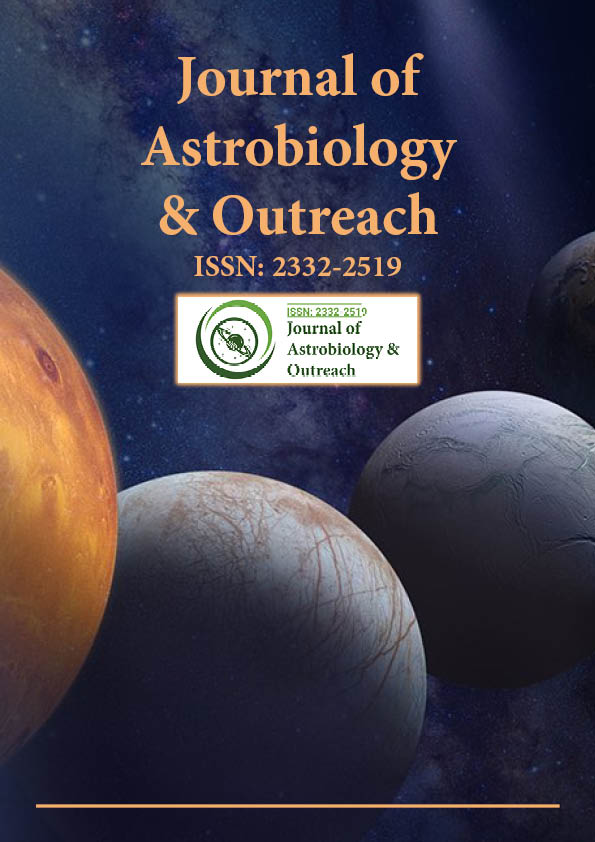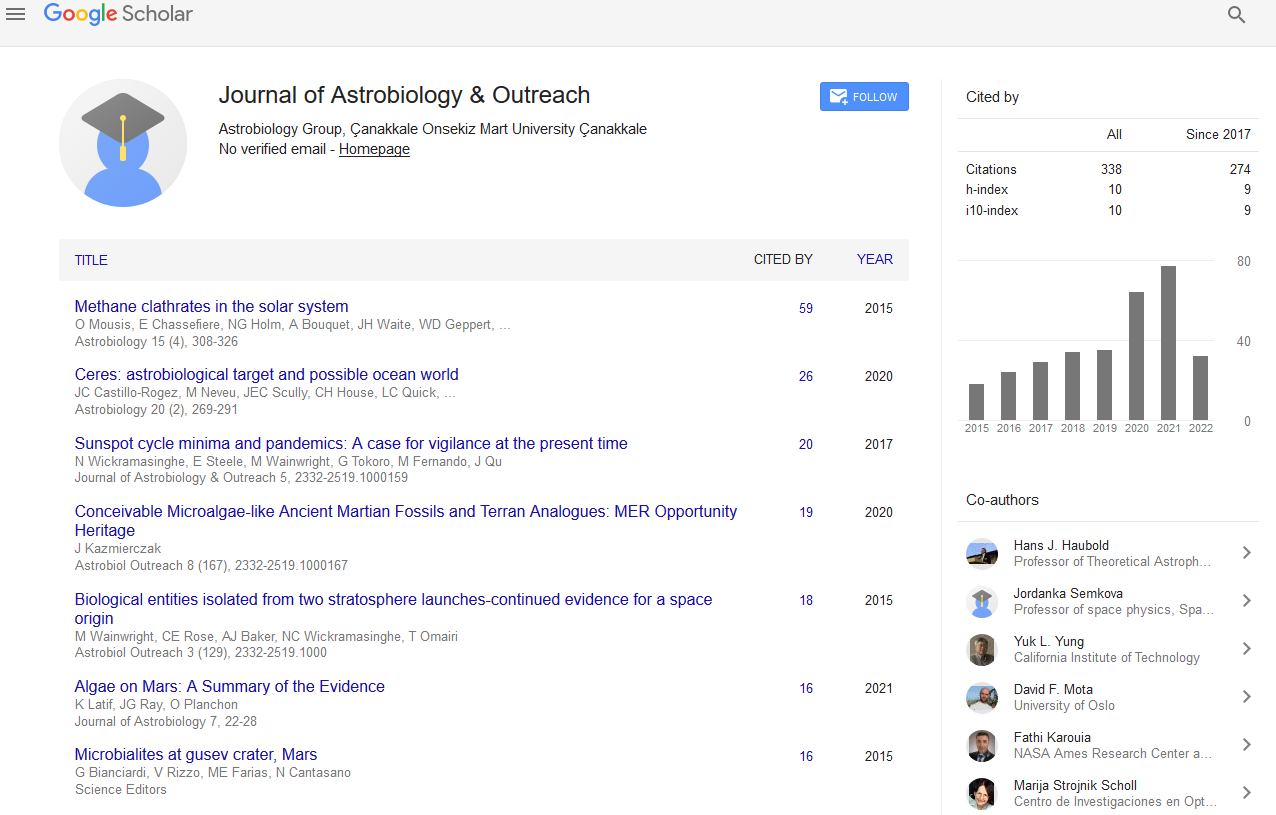Indexed In
- Open J Gate
- Academic Keys
- JournalTOCs
- RefSeek
- Hamdard University
- EBSCO A-Z
- OCLC- WorldCat
- Google Scholar
Useful Links
Share This Page
Journal Flyer

Open Access Journals
- Agri and Aquaculture
- Biochemistry
- Bioinformatics & Systems Biology
- Business & Management
- Chemistry
- Clinical Sciences
- Engineering
- Food & Nutrition
- General Science
- Genetics & Molecular Biology
- Immunology & Microbiology
- Medical Sciences
- Neuroscience & Psychology
- Nursing & Health Care
- Pharmaceutical Sciences
Commentry - (2023) Volume 11, Issue 1
The Planetary Protection Policy: Geopolitical Order Changes, More Difficulties for Space Control
Victoria Olsson*Received: 02-Jan-2023, Manuscript No. JAO-23-20216; Editor assigned: 06-Jan-2023, Pre QC No. JAO-23-20216 (PQ); Reviewed: 20-Jan-2023, QC No. JAO-23-20216; Revised: 25-Jan-2023, Manuscript No. JAO-23-20216(R); Published: 03-Feb-2023, DOI: 10.35248/2332-2519.23.11.278
Description
The Planetary Protection Policy (PPP) of the Council for Space Research (COSPAR) aims to safeguard the space environment from "harmful pollution" that could jeopardise the integrity of space exploration for science, including the hunt for extraterrestrial life. The PPP predates the Outer Space Treaty/ OST, which is a treaty on the principles governing states' activities in the exploration and use of space, including the moon and other celestial bodies. The PPP's status as a nonbinding document has allowed for a flexible and organic evolution that has made it possible for the Policy to be revised as scientific knowledge has grown. But, as the geopolitical order changes, more difficulties for space control arise. This discussion will look at the threat posed by a change in space exploration to the agreement that has emerged about planetary protection. Non-governmental, non-scientific players wishing to conduct commercial activities in space are now supplementing the conventional science-led approach to the investigation of celestial bodies. The way that planetary protection is codified in upcoming expeditions to other planets will be put to the test by these new actors, some of whom have already voiced doubt about the current arrangements.
It was impossible that a commercial business would become actively involved in the exploration of celestial bodies other than the Moon in the near future until the middle of the 2010s. Many private companies have sprung up in an effort to "Mine the Sky" and access a potential trillion-dollar space resource, and the challenges they face have been acknowledged with optimism. The enormity of the investment necessary mixed with the huge infrastructure needs of space mining meant such initiatives would be impossible to bring to reality, and the challenges experienced by businesses like Planetary Resources did little to dispel those misgivings. Because of the aforementioned financial realpolitik, trips to celestial bodies remained the domain of the scientific and academic players even though the exploitation of celestial bodies has been in the zeitgeist of the space community.
The COSPAR PPP was firmly established as the international norm by which contamination of celestial bodies would be avoided as a natural consequence of this. No NASA probe will be sent into space in the US, for instance, without first gaining the go-ahead from the NASA Planetary Protection Officer. Since mission planners and regulators are eager to avoid tainting a potentially pure extraterrestrial environment, they have generally complied with COSPAR PPP despite its entirely voluntary nature and lack of inclusion in the OST framework. Yet, this scientific dominion over planetary conservation is not a given to last forever. The 2016 International Astronomical Congress saw the first indications of a serious attempt by the private sector to engage in missions that would require adherence to the principles of planetary protection. Given that there is no evidence of life on Mars, there is a strong likelihood that those looking to explore other celestial bodies for commercial purposes will forego the stringent COSPAR PPP requirements in favour of a more lax approach to planetary protection.
Citation: Olsson V (2023) The Planetary Protection Policy: Geopolitical Order Changes, More Difficulties for Space Control. J Astrobiol Outreach. 11:278.
Copyright: © 2023 Olsson V. This is an open-access article distributed under the terms of the Creative Commons Attribution License, which permits unrestricted use, distribution, and reproduction in any medium, provided the original author and source are credited.

